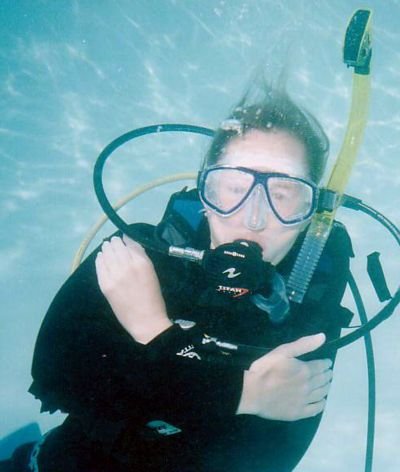Handling Minor Dive Incidents

Diver Chilling
Water conducts heat from your body 25 times faster than air. This is why it's important to wear appropriate thermal protection for the conditions you are diving in.
Even if you're wearing the most effective exposure suit available, it's still possible to become chilled while diving. This can lead to a serious condition called hypothermia, which is a drop in your internal body temperature. Symptoms of heat loss include shivering, numbness in the hands and feet, cramps, immobility, and an inability to think clearly.
If you develop any of these symptoms, immediately exit the water and get warm. To get yourself warm, remove your exposure suit, dry yourself off, and wear several layers of warm clothing. Warm drinks are helpful, but avoid caffeine. Stay out of the water until you have completely regained your body heat.
Even if you're wearing the most effective exposure suit available, it's still possible to become chilled while diving. This can lead to a serious condition called hypothermia, which is a drop in your internal body temperature. Symptoms of heat loss include shivering, numbness in the hands and feet, cramps, immobility, and an inability to think clearly.
If you develop any of these symptoms, immediately exit the water and get warm. To get yourself warm, remove your exposure suit, dry yourself off, and wear several layers of warm clothing. Warm drinks are helpful, but avoid caffeine. Stay out of the water until you have completely regained your body heat.



